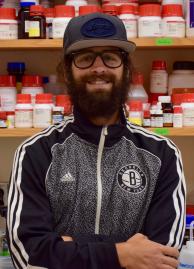
Seth Rakoff-Nahoum is an Associate Professor of Pediatrics at Harvard Medical School and the Boston Children’s Hospital Microbiome Research Endowed Investigator where he is in the Divisions of Infectious Diseases and Gastroenterology at BCH, the Department of Microbiology at HMS, and an Associate Member of the Broad Institute. Dr. Rakoff-Nahoum received B.A.’s in Biology and Religious Studies at Brown University, and both an M.D. and Ph.D in Immunobiology from Yale University, performing graduate work with Ruslan Medzhitov, studying pattern recognition of the microbiota. During clinical training in Pediatrics and Pediatric Infectious Diseases, he performed postdoctoral work with Laurie Comstock, studying social evolution in gut microbial communities.
The Rakoff-Nahoum lab uses tools of a broad toolkit in microbiology, immunology, host and bacterial genetics, gnotobiotics, bioinformatics and computational biology, centered in ecological and evolutionary frameworks, to understand how microbes interact with the environment, each other and their host. The driving principle of the lab is that by understanding the molecular, genetic, ecological and evolutionary mechanisms of how microbiome communities form and shape, with focus on the pediatric population, and how the microbiome influences host tissue and physiological systems over time and across health and disease, we can design targeted, ecologically- and mechanistically- rationale interventions to engineer a healthy and normative microbiome-host axis.
Dr. Rakoff-Nahoum’s work has defined innate immune pattern recognition as a dominant mechanism in animal-microbiome symbiosis and microbiome-driven human disease from IBD to cancer (Cell 2004, Immunity 2006, Science 2007), combined social evolutionary theory and bacterial genetics to unveil diet-based microbe-microbe interaction networks in the gut (Current Biology 2014) and reveal a rare example of inter-species altruism among microorganisms (Nature 2016), introduced control theory to understand host associated microbiomes (Nature 2017), transformed next-generation sequencing toward mechanistically predictive, ecologically-powered quantitative science to disentangle early-life microbiome assembly (Nature 2021) and revealed emergent properties in bacteria (Cell 2022). Dr. Rakoff-Nahoum’s lab is supported in part by the Pew Scholars Program in Biomedical Sciences, an NIH Director’s New Innovator Award a Basil O’Connor Award from the March of Dimes, the Bill and Melinda Gates Foundation, the G. Harold and Leila Y. Mathers Charitable Foundation and a Career Award for Medical Scientists from the Burroughs Wellcome Foundation.
